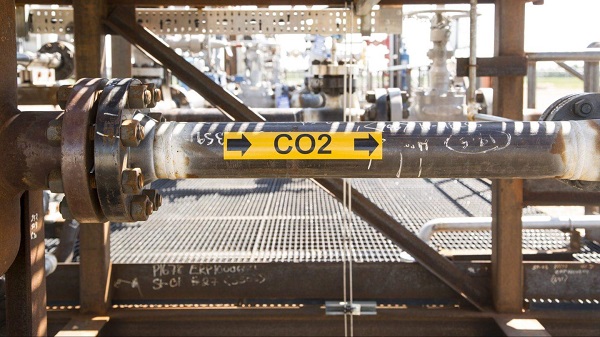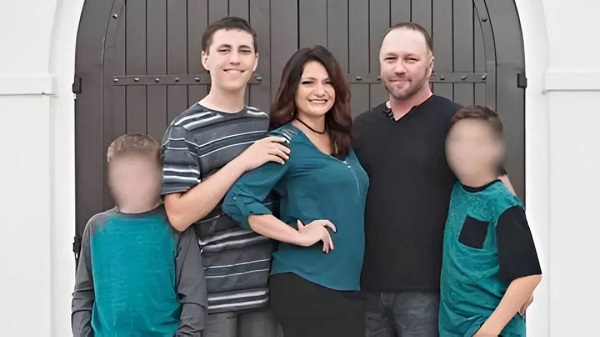Uncategorized
Presidents club assembles for Bush funeral, Trump an outlier

WASHINGTON — The death of George H.W. Bush is bringing together the five remaining members of an oh-so-exclusive fraternity — the presidents club. But for President Donald Trump, it may not be an entirely comfortable reunion, throwing him together with former occupants of the Oval Office who have given him decidedly mixed reviews.
Wednesday’s state funeral for the late president will be attended by “formers” Barack Obama, George W. Bush, Bill Clinton and Jimmy Carter. The last time they were together with Trump was at his inauguration in 2017. Recalling the funerals for Gerald Ford and Ronald Reagan, they will all sit together in Washington National Cathedral, with the exception of the younger Bush, who will be seated nearby with his family.
Those who have occupied the Oval Office share an unparalleled experience that typically builds a special camaraderie. And by virtue of health, longevity and opportunities for continued influence, ex-presidents are sticking around longer than ever and staying active in the public eye.
But since taking office, Trump has had little contact with his predecessors. He has not spoken to Democrats Clinton or Obama since his inauguration. He did speak with the younger Bush during the contentious confirmation process for Supreme Court Justice Brett Kavanaugh, as the previous Republican president helped lobby for his former aide. Democrat Carter has been briefed by White House officials on North Korea, though it was not clear if he has engaged directly with Trump.
Trump has sought to meet the elder Bush’s passing with grace, a contrast to the rhythms of much of his tumultuous presidency. He came to office after a campaign in which he harshly criticized his Democratic predecessors and co-opted a Republican Party once dominated by the Bush family. Despite the traditional kinship among presidents, Trump’s predecessors have all made their discomfort known in different ways.
“It’s unusual that a cabal of ex-presidents from both parties dislike a sitting president and that’s what you’ve got happening right now,” said Douglas Brinkley, a history professor at Rice University.
Past presidents often built relationships with their predecessors, Brinkley said. “Bill Clinton would reach out to Richard Nixon for advice on Russia,” he said. “Harry Truman leaned heavily on Herbert Hoover. It’s endless.”
To be sure, Brinkley added, those ties vary from president to president and there have been chilly relationships as well, noting, for example, that “FDR would never talk to Herbert Hoover.”
Busy with a mix of personal pursuits, charitable
In a speech in September, Obama slammed the “crazy stuff” coming out of the White House without directly naming Trump. Last year, the younger Bush made a speech that confronted many of the themes of Trump’s presidency without mentioning him by name, cautioning that “bigotry seems emboldened” and the nation’s politics “seems more vulnerable to conspiracy theories and outright fabrication.”
Over the summer, Carter told The Washington Post that Trump’s presidency was a “disaster.” And Clinton — stung by Trump’s defeat of wife Hillary Clinton in the 2016 presidential race — told a weekly newspaper in New York state after her stunning loss that Trump “doesn’t know much.”
Even the late Bush’s feelings about Trump were harsh at times. In Mark K. Updegrove’s book “The Last Republicans,” published last year, the elder Bush called Trump a “blowhard.”
The late Bush said he voted for Clinton in 2016 while George W. Bush said he voted for “none of the above.”
There have been other moments when the ex-presidents offered more sympathetic sentiments for Trump. After Trump’s surprise victory, Obama stood in the Rose Garden at the White House and said he was “rooting” for the next president. Carter told The New York Times in 2017 that the media had been harder on Trump than other presidents. Clinton said in June that America should be rooting for Trump to succeed in his North Korea talks.
While he has struggled to set the right tone in past moments of national grief, Trump has gone out of his way to address Bush’s passing with consideration, issuing kind statements and ensuring that Bush family members have whatever they need for the funeral. On Tuesday, first lady Melania Trump welcomed Laura Bush and other family members for a tour of the White House Christmas decorations. And Trump and the first lady visited with members of the Bush family at Blair House.
Jim McGrath, a spokesman for the late president, tweeted thanks to Trump for his efforts, praising the president and the first lady, as well as White House staff and Congress leadership “for their amazing support as we attempt to give this great and good man the send-off he surely deserves.”
Brinkley said that presidential funerals tend to be civil occasions, even after political strain.
After all, he said, “Bill and Hillary were at Nixon’s funeral and Hillary worked to impeach him.”
Catherine Lucey, The Associated Press
Uncategorized
CNN’s Shock Climate Polling Data Reinforces Trump’s Energy Agenda


From the Daily Caller News Foundation
As the Trump administration and Republican-controlled Congress move aggressively to roll back the climate alarm-driven energy policies of the Biden presidency, proponents of climate change theory have ramped up their scare tactics in hopes of shifting public opinion in their favor.
But CNN’s energetic polling analyst, the irrepressible Harry Enten, says those tactics aren’t working. Indeed, Enten points out the climate alarm messaging which has permeated every nook and cranny of American society for at least 25 years now has failed to move the public opinion needle even a smidgen since 2000.
Appearing on the cable channel’s “CNN News Central” program with host John Berman Thursday, Enten cited polling data showing that just 40% of U.S. citizens are “afraid” of climate change. That is the same percentage who gave a similar answer in 2000.
Dear Readers:
As a nonprofit, we are dependent on the generosity of our readers.
Please consider making a small donation of any amount here.
Thank you!
Enten’s own report is an example of this fealty. Saying the findings “kind of boggles the mind,” Enten emphasized the fact that, despite all the media hysteria that takes place in the wake of any weather disaster or wildfire, an even lower percentage of Americans are concerned such events might impact them personally.
“In 2006, it was 38%,” Enten says of the percentage who are even “sometimes worried” about being hit by a natural disaster, and adds, “Look at where we are now in 2025. It’s 32%, 38% to 32%. The number’s actually gone down.”
In terms of all adults who worry that a major disaster might hit their own hometown, Enten notes that just 17% admit to such a concern. Even among Democrats, whose party has been the major proponent of climate alarm theory in the U.S., the percentage is a paltry 27%.
While Enten and Berman both appear to be shocked by these findings, they really aren’t surprising. Enten himself notes that climate concerns have never been a driving issue in electoral politics in his conclusion, when Berman points out, “People might think it’s an issue, but clearly not a driving issue when people go to the polls.”
“That’s exactly right,” Enten says, adding, “They may worry about in the abstract, but when it comes to their own lives, they don’t worry.”
This reality of public opinion is a major reason why President Donald Trump and his key cabinet officials have felt free to mount their aggressive push to end any remaining notion that a government-subsidized ‘energy transition’ from oil, gas, and coal to renewables and electric vehicles is happening in the U.S. It is also a big reason why congressional Republicans included language in the One Big Beautiful Bill Act to phase out subsidies for those alternative energy technologies.
It is key to understand that the administration’s reprioritization of energy and climate policies goes well beyond just rolling back the Biden policies. EPA Administrator Lee Zeldin is working on plans to revoke the 2010 endangerment finding related to greenhouse gases which served as the foundation for most of the Obama climate agenda as well.
If that plan can survive the inevitable court challenges, then Trump’s ambitions will only accelerate. Last year’s elimination of the Chevron Deference by the Supreme Court increases the chances of that happening. Ultimately, by the end of 2028, it will be almost as if the Obama and Biden presidencies never happened.
The reality here is that, with such a low percentage of voters expressing concerns about any of this, Trump and congressional Republicans will pay little or no political price for moving in this direction. Thus, unless the polls change radically, the policy direction will remain the same.
David Blackmon is an energy writer and consultant based in Texas. He spent 40 years in the oil and gas business, where he specialized in public policy and communications.
Uncategorized
Kananaskis G7 meeting the right setting for U.S. and Canada to reassert energy ties


Energy security, resilience and affordability have long been protected by a continentally integrated energy sector.
The G7 summit in Kananaskis, Alberta, offers a key platform to reassert how North American energy cooperation has made the U.S. and Canada stronger, according to a joint statement from The Heritage Foundation, the foremost American conservative think tank, and MEI, a pan-Canadian research and educational policy organization.
“Energy cooperation between Canada, Mexico and the United States is vital for the Western World’s energy security,” says Diana Furchtgott-Roth, director of the Center for Energy, Climate and Environment and the Herbert and Joyce Morgan Fellow at the Heritage Foundation, and one of America’s most prominent energy experts. “Both President Trump and Prime Minister Carney share energy as a key priority for their respective administrations.
She added, “The G7 should embrace energy abundance by cooperating and committing to a rapid expansion of energy infrastructure. Members should commit to streamlined permitting, including a one-stop shop permitting and environmental review process, to unleash the capital investment necessary to make energy abundance a reality.”
North America’s energy industry is continentally integrated, benefitting from a blend of U.S. light crude oil and Mexican and Canadian heavy crude oil that keeps the continent’s refineries running smoothly.
Each day, Canada exports 2.8 million barrels of oil to the United States.
These get refined into gasoline, diesel and other higher value-added products that furnish the U.S. market with reliable and affordable energy, as well as exported to other countries, including some 780,000 barrels per day of finished products that get exported to Canada and 1.08 million barrels per day to Mexico.
A similar situation occurs with natural gas, where Canada ships 8.7 billion cubic feet of natural gas per day to the United States through a continental network of pipelines.
This gets consumed by U.S. households, as well as transformed into liquefied natural gas products, of which the United States exports 11.5 billion cubic feet per day, mostly from ports in Louisiana, Texas and Maryland.
“The abundance and complementarity of Canada and the United States’ energy resources have made both nations more prosperous and more secure in their supply,” says Daniel Dufort, president and CEO of the MEI. “Both countries stand to reduce dependence on Chinese and Russian energy by expanding their pipeline networks – the United States to the East and Canada to the West – to supply their European and Asian allies in an increasingly turbulent world.”
Under this scenario, Europe would buy more high-value light oil from the U.S., whose domestic needs would be back-stopped by lower-priced heavy oil imports from Canada, whereas Asia would consume more LNG from Canada, diminishing China and Russia’s economic and strategic leverage over it.
* * *
The MEI is an independent public policy think tank with offices in Montreal, Ottawa, and Calgary. Through its publications, media appearances, and advisory services to policymakers, the MEI stimulates public policy debate and reforms based on sound economics and entrepreneurship.
As the nation’s largest, most broadly supported conservative research and educational institution, The Heritage Foundation has been leading the American conservative movement since our founding in 1973. The Heritage Foundation reaches more than 10 million members, advocates, and concerned Americans every day with information on critical issues facing America.
-

 Frontier Centre for Public Policy1 day ago
Frontier Centre for Public Policy1 day agoBloodvein Blockade Puts Public Land Rights At Risk
-

 Business2 days ago
Business2 days agoDeportations causing delays in US construction industry
-

 Alberta1 day ago
Alberta1 day agoParents group blasts Alberta government for weakening sexually explicit school book ban
-

 Crime2 days ago
Crime2 days agoCanadian teacher showed Charlie Kirk assassination video to young students, said he deserved to die
-

 Business1 day ago
Business1 day agoThe Truth Is Buried Under Sechelt’s Unproven Graves
-

 MAiD2 days ago
MAiD2 days agoFamous Canadian children’s author Robert Munsch says he plans to die by euthanasia
-

 Alberta2 days ago
Alberta2 days agoAlberta updates TIER system: Businesses can direct compliance payments to on-site technologies
-

 Automotive2 days ago
Automotive2 days agoMichigan could be a winner as companies pull back from EVs






